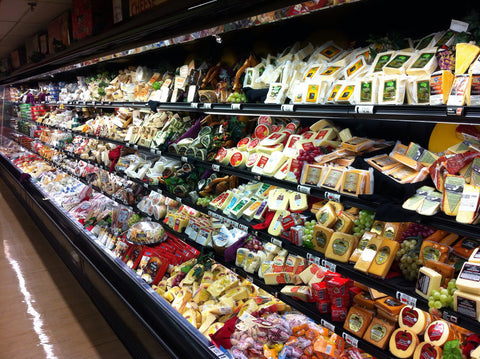When grocery shopping, you’re already taking a step in the right direction by checking the labels of the products you buy. Making sure you understand what’s listed on the label is key to maintaining a healthy lifestyle. Even something as harmless as almond butter can often contain added sugars and flavors to enhance the taste. Here are some common mistakes made when reading the labels and how to avoid them!
- The label doesn’t tell you everything
While the label can tell you the rough amount of calories, fat, cholesterol, sodium, etc., other numbers such as the daily value can be misleading. Those numbers are calculated with an average intake of 2000 calories every day – so for those on a diet or those looking to bulk up, the percentages don’t tell the full story. You should always make sure you’re aware of your personal dietary needs.
- Buying in bulk isn’t always better
When we think of mindless bulk eating, we tend to think of TV dinners or fries in way larger portions than necessary. If something is in a larger portion or container, you will eat more of it. But the same rule applies to any kind of snack, even if they’re healthy. It helps to buy prepackaged containers – like bars, for instance – but if you’re buying everything else in bulk too, you should split it up to be mindful of what you actually eat.
- Low calorie doesn’t mean it’s healthier
The classic low calorie diet might work for some, but if you’re really looking to change your lifestyle, you need healthy foods that are also high in calories. Superfoods like quinoa, avocados, and chia seeds are high calorie foods that do wonders for your body. So don’t trust the low calorie label!
- Check the sugar value
One way in which a food label is a valuable tool is in signifying the amount of sugar in each product. The “no added sugar” label can be tricky – but some foods, such as fruit, naturally contain high amounts of sugars. Even those naturally occurring sweeteners can be hazardous to your health, so make sure you know to balance your fruits with veggies too.
- Buying artificial sweeteners
While sugar certainly isn’t your friend, sometimes, plain old white sugar cane is better than other chemically-created compounds such as aspartame, the sweetener found in diet drinks. Sticking to natural sweeteners like honey or agave nectar is the best option, but if you absolutely must – always choose the sugar over the artificial sweeteners!

